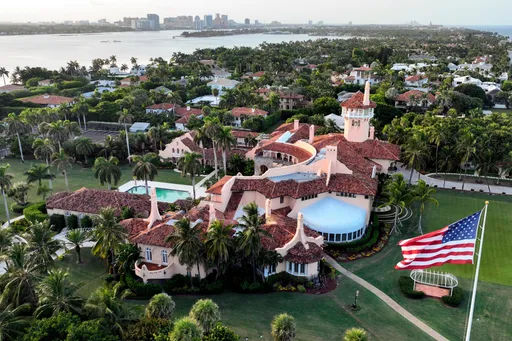This year sees the fifth anniversary of the Paris Agreement. The landmark agreement on climate change “seeks to limit global average temperature rise to well below 2C above pre-industrial levels and pursue efforts to limit the increase to 1.5C” according to the International Institute for Sustainable Development (IISD).
The Climate Ambition Summit marks the anniversary on December 12, 2020. It will be held online with world leaders and leaders of non-state actors.
The Climate Action Tracker group tracks updated targets by “governments [which] formally acknowledged that their national climate targets collectively would not meet the goal of limiting warming to 1.5C. So they undertook to do the first update of their 2030 targets which are part of a country’s “nationally determined contribution” (NDC) by 2020, backed by the IPCC Special Report on 1.5C, which was completed in October 2018.”
It is “an independent scientific analysis that tracks government climate action and measures it against the globally agreed Paris Agreement aim of ‘holding warming well below 2C, and pursuing efforts to limit warming to 1.5C.’”
What the Climate Action Tracker group has found, BBC Newsreports, is that looking at “new climate promises from China and other nations, along with the carbon plans of US President-elect Joe Biden,” the rise in world temperatures could be held to 2.1C by the end of this century.
This is a good development as previous estimates had pointed to 3C of heating, with horrendous impacts. But this may not be enough, as long term optimism may not be matched by short term plans to reduce CO2, BBC News says, referring to experts.
The Paris Agreement was put in place to prevent dangerous warming of the Earth. It made countries turn away from fossil fuels and the Climate Action Tracker group announced that the world would warm up by around 2.7C by the end of the century.
This is still above the 2C goal mentioned in the Paris Agreement, and definitely a far cry from the 1.5C target that scientists recommended as the cutoff for destructive warming in 2018.
According to BBC News, their new "optimistic analysis" now suggests a rise of 2.1C by 2100.
Changes afoot
The significant changes that took place within the last three months could be summed up as China’s president Xi Jinping’s commitments to the environment, and the election of Joe Biden as the United States president.
Xi has told the UN that his country’s emissions will peak before 2030, and that it will reach net zero emissions by 2060. CAT researchers believe this could reduce warming by 0.2 to 0.3C by 2100.
Japan and Korea have also gone ahead with their own pledges, of reaching net zero by 2050. South Africa and Canada have also declared theirs.
What about the election of Joe Biden as the United States president? He has often said he plans to reverse President Donald Trump’s withdrawal from the Paris Agreement, and has a comprehensive environmental plan.
Biden says he plans to bring the US to net zero emissions by 2050. This would lower global temperatures by 0.1C by the end of the century.
Speaking to BBC News, Bill Hare from Climate Analytics, who helped lead the Climate Action Tracker analysis, says "We now have north of 50% of global emissions covered by big countries with a zero emissions by mid-century goal."
"When you add all that up, along with what a whole bunch of other countries are doing, then you move the temperature dial from around 2.7C to really quite close to two degrees," he adds.
"It's still a fair way off from the Paris Agreement target, but it is a really major development," he says.
Not all smooth sailing
“The Climate Action Tracker (CAT) has calculated that global warming by 2100 could be as low as 2.1C as a result of all the net zero pledges announced as of November 2020,” says the CAT website.
CAT warns that “While 2050 net zero targets are commendable, governments must now adopt stronger 2030 targets (nationally determined contributions or NDCs) to deliver on their net zero goals, and close the remaining emissions gap to 1.5C.”
“However, there remains little positive movement by governments to improve their 2030 NDC targets since Paris in 2015. As of November 2020, no large emitter had submitted a substantially updated NDC since the adoption of the Paris Agreement. Moreover, governments' current policies put them on a warming trajectory of 0.8°C higher than our optimistic net zero target assessment.”
"Countries have not yet adjusted their short-term actions to be on a pathway towards the long-term target," Niklas Hoehne, from the NewClimate Institute, who also works on the Climate Action Tracker, tells BBC News.
"Long-term targets are easier, they are far away. But short-term actions are happening right now and they affect citizens, they affect voters. And that's why this is much more difficult," he adds.
The Green New Deal
The Green New Deal makes a reference to FDR’s (Franklin Delano Roosevelt, the 32nd US president) ‘New Deal’ that was a series of social and economic reforms and public works projects launched during the Great Depression.
It was proposed to the US House and Senate by Rep Alexandria Ocasio-Cortez (D-NY) and Sen. Ed Markey (D-MA) in 2019. According to the New York Times, “it calls on the federal government to wean the United States from fossil fuels and curb planet-warming greenhouse gas emissions across the economy. It also aims to guarantee new high-paying jobs in clean energy industries. The resolution is nonbinding, so even if Congress approves it, nothing in the proposal would become law.”
“The goal of the Green New Deal is to reduce greenhouse gas emissions in order to avoid the worst consequences of climate change while also trying to fix societal problems like economic inequality and racial injustice,” the New York Times reports.
The idea is not new; columnists such as Thomas Friedman writing for the NYT and governments such as the United Kingdom’s, as well as the United Nations Environment Programme (UNEP) have promoted it. Despite the renewed interest in it thanks to Ocasio-Cortez’s support, however, it failed to make much headway in the US.
Due to the unanimous opposition of Republicans, who called for an early vote on the resolution without allowing discussion or expert testimony, Democrats protested against the vote, and the bill did not pass.























